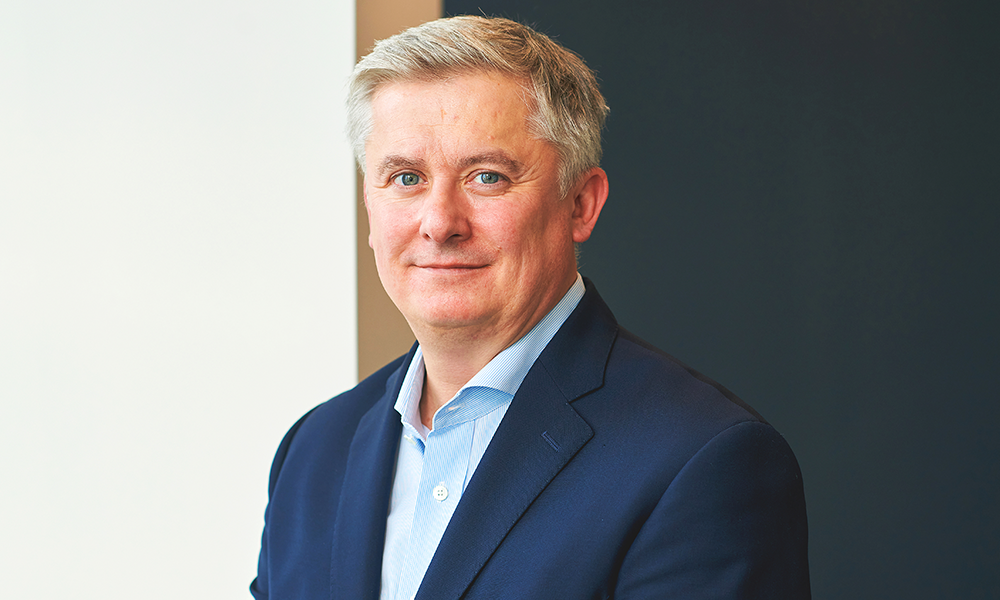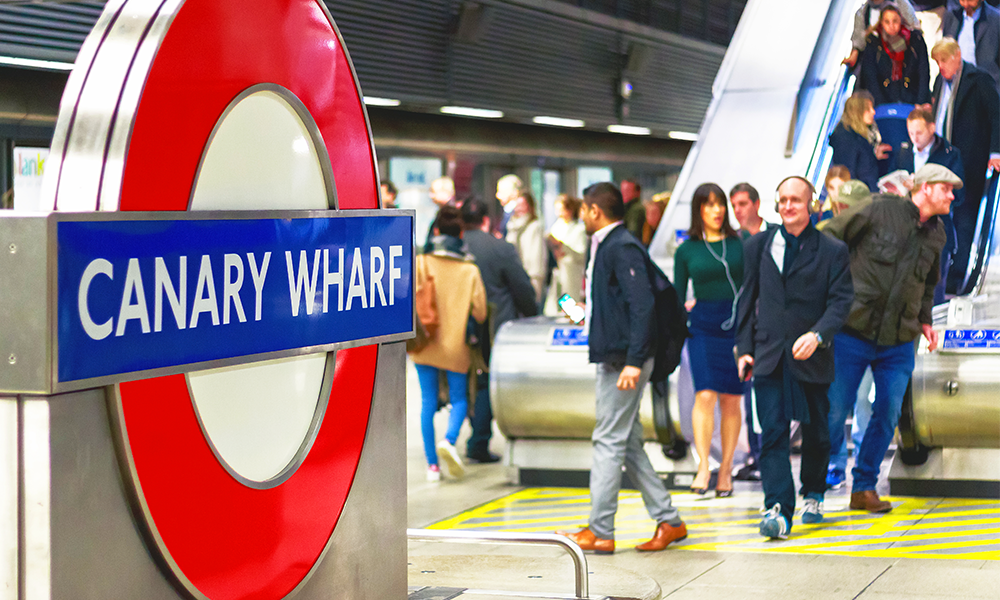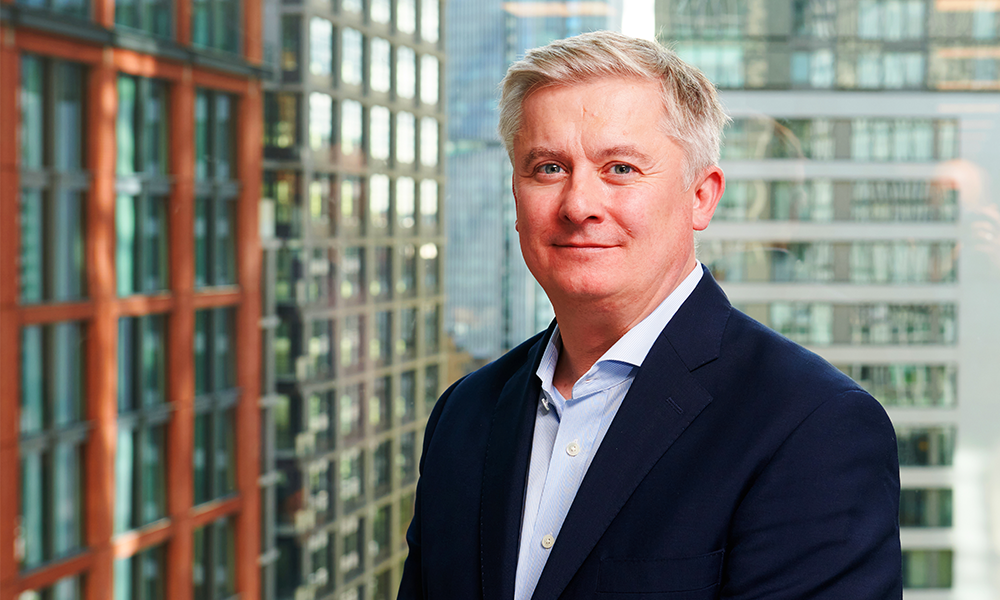Bank Of London And The Middle East and Nomo have relocated to 20 Churchill Place from the City

Subscribe to our free Wharf Whispers newsletter here
There’s been much talk of late about the future direction of Canary Wharf.
HSBC’s forthcoming departure, Clifford Chance’s move and Credit Suisse’s enforced purchase by UBS are all significant changes for the estate.
But, quite apart from the flourishing retail and hospitality scene that has seen a deluge of openings in recent years, the direction of travel in the office market is far from one-way.
Areas of London evolve continually. Companies’ requirements change over time, generating a constant churn of relocations.
The City is packed with wine bars and hotels in buildings that once held banks, vacated by the businesses they were built for. It’s a natural process as firms grow, merge or close.
Whatever the Wharf looks like in 20 years’ time, for now, it’s continuing to attract companies.
Growing construction firm McLaren is delighted with its light and airy space at 20 Churchill Place, having got significantly more square footage for its budget than alternative locations in the City.
Digital challenger bank Revolut, currently based at Westferry Circus, is also apparently eyeing a chunk of YY London in Reuters Plaza by the Tube station rather than moving out as it navigates its ongoing expansion.
Also new to the estate is the Bank Of London And The Middle East (BLME), which recently moved into space in the same building as McLaren.
“Our decision was driven by value for money but also by different ways of working,” said Andrew Ball, chief executive at BLME.
“We had an opportunity to come out of our existing lease and as well as it making financial sense, we wanted to improve the space we use.
“In addition to BLME, we have a fintech company that sits under our licence and delivers technology for our fintech bank Nomo.
“Obviously that’s a different way of working to traditional banking – software engineers, for example, need collaboration space rather than separate offices.
“While I do have a small office for private discussions with shareholders and so on, we’ve made the rest open space.

“There are phone booths for people to have private calls, but the design allows for hybrid working and gives people flexibility for the time that they are in the office.
“It’s a space they can really use rather than cramming into little meeting rooms.
“It’s possible to get stuck in an office environment which you’ve always been used to having, with the same desk layout.
“Here we’re coming to something we can actually use.
“The executive management used to have their own offices, but now they are sitting amongst people, whether it’s with the payment team, the tech guys around the corner or the customer service team.
“Now people are finding out things about the organisation, just by sitting somewhere different with different people.
“We have a desk booking system and nobody gets the same desk, unless they have a role where they have to be in the same place every day, such as IT.”
BLME employs around 250 people, with space in its offices for 90, meaning staff rotate in and out depending on need.
Andrew said the bank had ambitious growth plans and would hopefully be looking for more space in three years.
“We’ve grown quite a lot as we have come out of the pandemic,” he said.
“We launched Nomo completely remotely during Covid – a digital bank for clients in the Middle East, who want a British bank account. In that way we saw what was doable.
“You have to offer flexibility if you want to attract the best staff.
“But, if you’re a graduate, starting your career, then sitting with someone, talking to them and finding out what they do is vital.
“When people do come into the office – and we’ve had a lot of new staff starting in the last year – they actually welcome the fact that they can meet people in person.
“This is a very different environment to what we had over in Cannon Street – our plan is to live in it, figure out what works and what doesn’t and then adapt working styles accordingly.
“On Wednesdays, for example, our fintech compant takes over the office so they can get that engagement and rapport going, otherwise it will be to the detriment of corporate culture.
“We like to be very open – so people know each other.
“We’re not about working unseen on the 50th floor – a lot of what we do is driven by relationships, whether internally or with our clients.”

What BLME does is a little different to most of the other financial institutions on the Wharf.
Both the firm and Nomo are Sharia’a compliant institutions, offering Islamic banking and financial services to customer in the UK and the Middle East.
“There are lots of debates about what Islamic finance is,” said Andrew, who has a long history of working in the Gulf.
“BLME is the first Islamic institution I’ve worked for – prior to this role, all my experience was with conventional banks.
“In essence, Islamic finance is very open and transparent. For many clients it’s a different way of working.
“In essence, it’s a contract between two different parties, with a notion of shared risk.
“Everybody goes into a transaction knowing what they’re going to pay, what the bank’s obligations are and what the client’s obligations are – that makes it very transparent.
“If it isn’t in a document, we can’t do it and we can’t charge you for it.
“What’s in the contract is key. There are no hidden fees or agreements. It’s very clear – we’re a very simple business.
“Once an organisation has got its head around the paperwork, they can see it’s a better way of doing business.
“We had a firm that did one development with us who initially found it difficult.
“But now we’re their go-to bank because they saw the advantages.
“We handle real estate finance, whether it’s developments, investment properties or big buy-to-let portfolios.
“We also offer private banking, which may be around property, and then we have our digital bank, which is focussed on affluent customers who want to operate in the UK.
“Perhaps they have children studying here, or they are investing here or looking to buy here.
“We don’t do things we don’t understand and we’re pretty cautious as an organisation and we see UK regulation as an asset – people want to know their money is safe.
“We don’t finance things which have anything to do with tobacco, defence or arms – anything that wouldn’t comply with Sharia’a law.”
That also means BLME essentially doesn’t pay or collect interest on money – customers instead get a portion of the profits on shared investments – a system the Bank Of England now supports through its Alternative Liquidity Fund.
“That levels the playing field to a certain extent because it means we can get a return on our surplus liquidity,” said Andrew.
“Our future very much lies in the Gulf, which is where our clients are.
“You can divide our bank into two –we have pure UK-based clients who invest, build and rent UK property and then we have clients based in the Gulf who are investing in the UK.
“I think that part of our competitive advantage is that BLME was conceived to bridge that gap in terms of inward investment.
“Then we believe what we offer through Nomo is a world-first, where a client can sit in their armchair in Kuwait and open an account in eight minutes – that’s unheard of because dealing with UK banks is usually a long process.”
For Greenwich resident Andrew, the return to the Wharf was not without some personal anxiety.
“I was filled with a sense of trepidation, coming back to the this area, having worked here at Citibank 20 years ago – but I’ve been more than pleasantly surprised and the feedback we’ve got from the teams has been brilliant,” he said.
“People were worried what it was going to do for their commute, that Canary Wharf is a soulless place where you can’t get a decent sandwich with no restaurants, but it’s not like that at all.
“From a business perspective it’s certainly value for money – and there’s a real buzz around the place.
“The atmosphere here, even at the weekend is great – people are coming to Canary Wharf as a destination.
“Dishoom is one of my favourite restaurants and now there’s a branch a stone’s throw away. When you think what it was like 20 years ago, it’s fantastic.”
Find out more about BLME here and Nomo here
Read more: How Level39-based WyzePay offers discounts at MMy Wood Wharf
Read Wharf Life’s e-edition here
Subscribe to our free Wharf Whispers newsletter here
- Jon Massey is co-founder and editorial director of Wharf Life and writes about a wide range of subjects in Canary Wharf, Docklands and east London - contact via jon.massey@wharf-life.com



